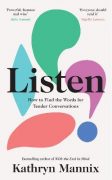Dr Kathryn Mannix: Writing The Difficult Second Book
 Kathryn Mannix wants us to be better informed and less afraid about dying. She qualified as a doctor in 1982 and became a consultant specialising in palliative medicine in 1995.
Kathryn Mannix wants us to be better informed and less afraid about dying. She qualified as a doctor in 1982 and became a consultant specialising in palliative medicine in 1995.
During 30 years in palliative care, Kathryn has worked in patients’ own homes, in Hospices and in busy teaching hospitals alongside palliative care specialist nurses and other colleagues, enabling people with life-limiting illnesses to make the very best of their remaining life-expectancy.
By recounting stories from the bedsides of these patients, Kathryn shares the experiences that have enabled her to see dying as something we can plan for and manage rather than something to fear and avoid discussing. Knowing that every day counts us down is not depressing, but an invitation to seize each day and live every moment as fully as possible.
We are delighted to feature this piece by Kathryn, on writing her book LISTEN.
I’m an accidental writer. It just seemed to happen. The idea was to finish off a career in medicine, spent mostly in palliative care, by giving back all the wisdom I’d received. The obvious vehicle was stories: telling the tales of the people I’d met who were living the last parts of their lives, inviting each reader to come alongside with me to witness courage and terror, comfort and conversations. Telling enough of each person’s story to engage a reader in minding what happened, to make them look closely, to pay careful attention. This is how we die, I wanted to say. Like this: by living every day until the last one. Don’t look away in fear: come closer, and be consoled by the truth.
To my amazement, With The End In Mind became a best-seller. It was short-listed for a prestigious literary prize and was a ‘Thought Book of the Year.’ I was invited to book festivals, to give public lectures and to deliver medical training sessions around the world. I’ve been saying this for thirty years. Why all the interest now? My publishers, of course, wanted a second book.
But there was no need for a second book. I had distilled thirty years’ experience into that single volume. Surely a second book would simply be a vanity project? I had said what I came to say; now, let it be. It’s been an astonishing experience, but I’m not a Writer, I’m just a doctor who wrote a book.
But by then, the messages had begun to arrive. Letters, social media messages, emails. A tide of connection: ‘We need to talk about this. I want to plan ahead for my death. I need to understand my aging parents’ wishes. My child is dying, how do I prepare her siblings? How do we talk about things too hard to think about?’
I have a lot to say about The Difficult Conversation, beginning with not calling it that. I have a lifetime’s experience of communicating about matters too hard to think about. I have a psychotherapist’s viewpoint, a doctor’s viewpoint, and the viewpoint of a mother, daughter, wife, friend, trainer, trainee, negotiator and service manager. Yes, I can talk about those significant conversations across the years and through our lives. Yes, I told my publisher. Yes, there’s a second book in me, and it will be called after the key skill in those tender conversations: Listen. In my mind I envisaged a ‘Toolkit’ approach.
So, two years after the publication of my first book, I signed a contract to deliver a second. I had a year to write it; I signed the contract in January 2020, just as a new coronavirus was beginning its path of destruction across the world. Writing the proposal had begun the process of distilling the components of communication skills, but the form of the book and the stories that would illustrate the principles I had in mind were not yet clear. I doodled in my notebook. I took walks. I listened to the news as the virus spread through northern Italy. But I did not write.
The approach of the virus, the tsunami of horror sweeping Italy yet not reported in any detail in our media, the stories from our Italian colleagues, held my gaze. I cannot sit at my kitchen table and write, while death-naïve colleagues in hospital face escalating numbers of dying, breathless people. I could not write.
I visited my parents and told them to stay at home, to have their groceries delivered, to stay away from gatherings. They were perplexed by my anxiety. Within ten days, the first of their friends was in hospital with covid and a week later he was dead. They were aghast. I could not write.
But I could volunteer. I contacted the national End of Life Care leads and asked to be made use of. They gave me a fantastic brief: to work with a small team to devise and deliver a communication skills framework that could be used by staff making those delicate and distressing telephone calls from hospital, calls to maintain contact with families of people too breathless to phone home; to break unwelcome news; to be the conduits of the love usually spoken in person at deathbeds. The toolkit metaphor strained in my mind; too concrete, too blunt, too sequential.
Devising the Unwelcome News framework* finally made me deconstruct the tender conversations. How to establish a rapport; how to let the other person tell the ‘story so far’ as they understand it, so that we can walk alongside and understand their perspective, help them understand what has already happened, and then place the next piece of information in a way that informs without brutality, even when it is the worst news of all. How to be present as they absorb the news, giving them the silence they need for thought, yet remaining engaged and supportive. How to keep out of the way, and yet still be their companion. How to avoid leaping in with words of excuse, explanation, consolation, reassurance, technical details, I know how you feel… How to respect the process of communication by listening, asking helpful questions, leading the other person gently to the place of understanding.
All this, I wrote. Not as a Writer, but as a physician. Not for a book, but for a health services framework with training materials and a code of practice. Familiar formats for many years, and yet I noticed that I was stretching the formality of the documents, and using looser language: freed from the necessity of medi-speak, now I was writing directly to the frightened newly-qualified nurse, the overwhelmed junior doctor; the exhausted ICU team. I was writing.
Clearance to return to work finally arrived, and my local hospitals used my services in staff support and to run practical communication skills training based on the framework we had prepared for the NHS. Now, in watching and listening as staff from the most junior to the most experienced practised their listening skills, the layers of skill became clear and the metaphor I had been searching for emerged. Each skill individual, yet layered with the others. A shared space, a mutual task. Moving forwards, and sometimes backwards, in step. A dance. Tender Communication is a dance.
There were only a few months left to deliver the book by the time I stepped away from the NHS again as covid cases dropped in my area. But the book was now clear in my head: stories from across the life-span, illustrating the principles of tenderness in communication, building like a dance course from the simplest paying of attention to the most complex dispute-resolution conversations. The music was in my head at last. And I wrote.
*Breaking Unwelcome News Framework https://bit.ly/3ifU6II
—
Kathryn lives in the countryside with her husband and four hens. She laughs a lot. She is easily moved to tears by the extraordinary wonder of everyday life. And she’s not afraid of dying.
Follow her on Twitter https://twitter.com/drkathrynmannix
And Facebook https://www.facebook.com/DrKathrynMannix/
LISTEN
 ‘Powerful, humane and wise’ JULIA SAMUEL
‘Powerful, humane and wise’ JULIA SAMUEL
‘Everyone should read it’ NIGELLA LAWSON
‘Beautiful … This is a book for everyone. You feel held by it’ PHILIPPA PERRY
Most of us have a conversation we’re avoiding.
From the bestselling author of With the End in Mind, this is a book about the conversations that matter and how to have them better – more honestly, more confidently and without regret.
A child coming out to their parent. A family losing someone to terminal illness. A friend noticing the first signs of someone’s dementia. A careers advisor and a teenager with radically different perspectives.
There are moments when we must talk, listen and be there for one another. Why do we so often come away from those times feeling like we could have done more, or should have been braver in the face of discomfort? Why do we skirt the conversations that might matter most?
By bringing together stories with a lifetime’s experience working in medicine and the newest psychology, Mannix offers lessons for how we can better speak our mind and help when others need to.
Kathryn Mannix’s ‘With the End in Mind’ was a Sunday Times bestseller the weeks ending 6 January 2018, 13 January 2018 and 3 February 2018.
BUY HERE
Category: How To and Tips























